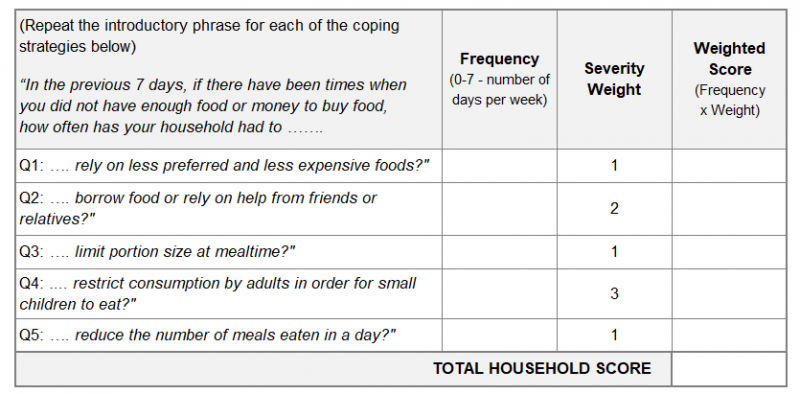Determine the indicator's value by using the following methodology:
1) Conduct individual interviews with a representative sample of the target group members, asking them how many times (in the previous 7 days) they had to use the coping strategies listed below. Use the questions provided in the left column below. Record the frequency by entering the relevant number (e.g. 0 – did not have to use the coping strategy; 2 – had to use it twice; 7 – had to use it every day in the past 7 days).

2) During the data analysis, for each coping strategy, multiply the ‘frequency’ by the assigned ‘severity weight’, thereby getting a ‘weighted score’ per each strategy.
3) Add up the scores of all assessed strategies to receive the household’s RCSI score. A high score means an extensive use of negative coping strategies and hence increased food insecurity (the maximum score for the RCSI is 56; this would happen if a household used all five strategies every day for the last 7 days).
4) To calculate the indicator’s value, add the RCSI scores of all the surveyed households and divide this by the total number of surveyed households.